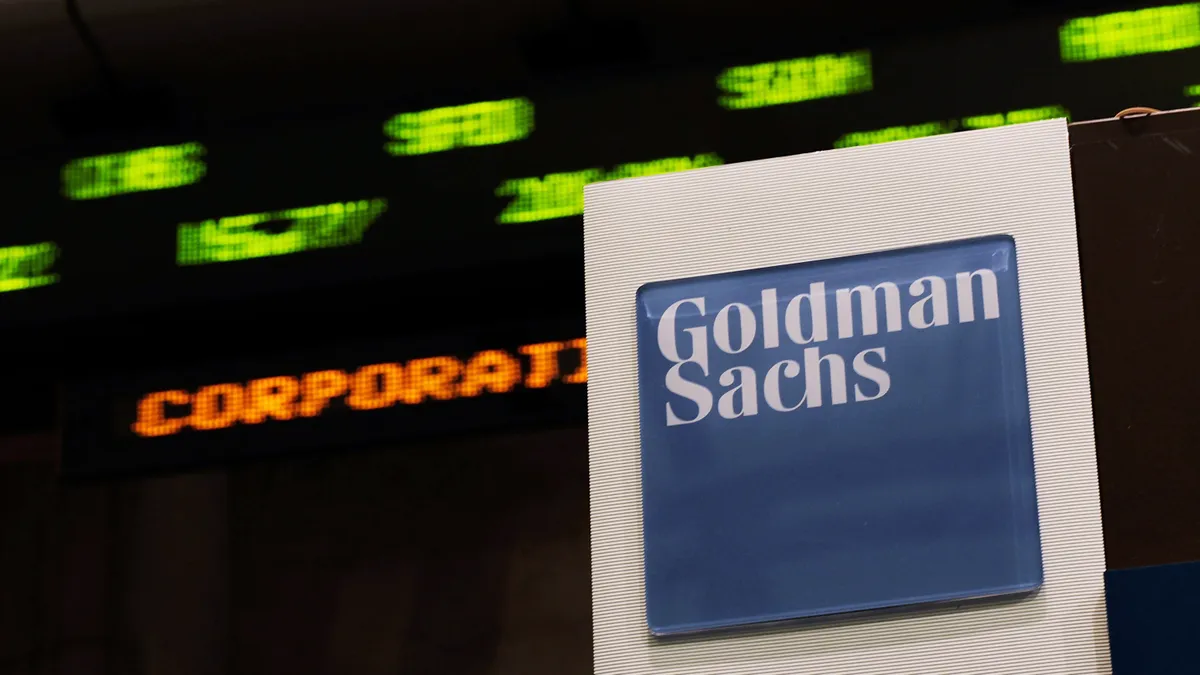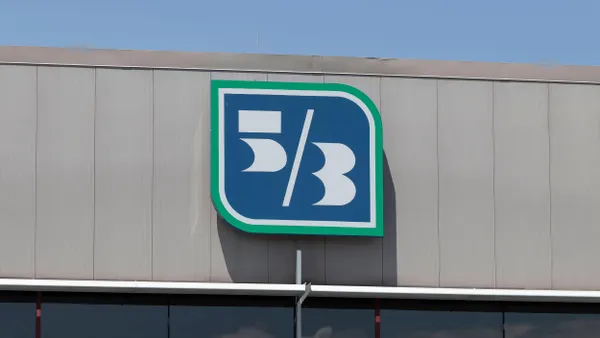Dive Brief:
- Payments provider Fiserv and investment bank Goldman Sachs said they’re partnering to improve the ability of businesses to make cross-border payments to suppliers. They aim to “remove the friction inherent in B2B payments related to high transaction costs and settlement speeds,” they said in a press release Tuesday.
- The initiative will be the first move in a broader strategic tie-up between the companies on payments innovations.
- Brookfield, Wisconsin-based Fiserv will streamline the international B2B supplier payments for accounts payable while Goldman will handle foreign exchange and “domestic payment delivery," in as many as 125 currencies, according to the release.
Dive Insight:
Cross-border payments have been a challenge for decades as companies passed them through a slow, convoluted network of financial institutions that was expensive to use. Now, major financial companies are tackling that cross-border conundrum with more rigor and intensity as startups force the issue.
Legacy companies in the payments arena, including card networks, banks and processors, are racing to offer innovations that alleviate those cross-border payment difficulties, or partnering with younger peers to do the same, sometimes in a bid to hold the rivals at bay.
Fiserv’s head of global enterprise solutions, David Ades, acknowledged cross-border transactions have been a “pain point” for years, and the payments industry redoubled its efforts to address it now because the COVID-19 pandemic increased clients’ need for fast and secure international digital payments.
“What we’ve seen is the entire digitization of payments rapidly take off,” Ades said in an interview, noting that the trend was building over the past three to five years. “This has been a problem for a long time and it’s taken this amount of time to get the right solution in the market.”
Other companies are targeting cross-border payment innovations. New York-based Goldman also partnered with card network giant Visa last month to bolster corporate and commercial clients’ ability to send payments to businesses and consumers worldwide. Google Pay has locked arms with the money transfer company Western Union and the fintech Wise to beef up its international peer-to-peer payments system. On the retail side of payments, online marketplace Ebay is working with Payoneer to speed up purchaser payments to sellers in an array of currencies.
Ades said he expects the new offering will be useful to Fiserv's many clients that must pay international suppliers, including those in retail, automotive and healthcare fields.
If Fiserv is “unable to service them, they’re going to have to figure out another solution,” Ades said, adding that Fiserv's pact with Goldman will head off that possibility. “If you’re ordering supplies from across the globe, you’re going to have to have a [Fiserv] solution.”
Companies all too often find those transactions to be painfully difficult because they’re too slow, costly and inefficient, particularly as companies try to work with multiple intermediaries to make the international payments, Ades said.
“Efficiently managing the delivery of cross-border payments across an extensive network of international suppliers is a pain point for our clients with a large global presence,” Ades said. “Pairing our B2B accounts payable technology with an industry leader in transaction banking offers these clients a secure solution that brings new levels of automation, efficiency and cost savings to accounts payable.”
For now, the new partnership is focused on providing expanded capabilities for Fiserv clients, but Ades expects Goldman clients will also ultimately benefit from the two companies teaming up.
With respect to what comes next in the new Fiserv-Goldman tie-up, Ades declined to comment other than to say the two companies have “identified [additional] market gaps” that they can fill in the payments arena. “Other pain points [in payments] that have been brought to our attention by our client base” will be addressed next, he said.















